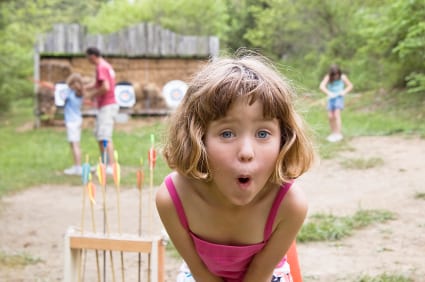 Summer is almost here!
Summer is almost here!
The American Academy of Pediatrics (AAP) has created recommendations to best prepare and protect young people for participation in day camp or sleep-away camps. The AAP established these guidelines to support nearly 11 million kiddos who attend camp each summer.
Whether day or sleep-away, camp is a new environment for children and it is important for both parents and camp professionals to pay attention to health and psychosocial needs of children. As with school and non-camp child care experiences, communication is key.
Parents are encouraged to have open, honest, and clear dialogue with camp health providers and share information about medical and psychological issues.
Some points from the AAP’s wonderful summary:
1. Parents should understand and include their child in the decision making process while choosing a camp setting. A child’s interests, emotional factors, and maturity level are paramount factors to consider when choosing the right camp setting. This may include factors such as physical fitness requirements or distance from home (for sleep-away).
2. All camps should be provided with full and complete health information for each camper. This should cover all health history including surgeries, hospitalizations, allergies, and psychological health. For kids with medical issues, a clear and well understood health coordination plan is essential between parents, campers, and camp staff.
3. If health status CHANGES prior to camp starting (for example, if a child starts any new medications), it is important to communicate this information.
4. Immunization should be up to date prior to starting camp.
5. Parents, campers, and camp professional should be well aware of how to address home-sickness (for both day and away camp).
6. Camp professionals are responsible for explaining expectations for camp participation clearly to parents (and campers). For example, if there are particular activities such as scuba diving, a family should be aware of this and be in a position to discuss with health care providers in advance of camp participation.
7. Camps should have written health policies and protocols that have been approved by a qualified physician. This should include clear guidelines on how communicable diseases are handled once discovered on camp premises.
8. Camp health care providers with proper training should have appropriate medications and supplies to handle the health needs of campers. This will vary depending on the camp setting and the individual health needs of campers. Camps should also have emergency health care procedures in place.
9. Camps should maintain health documents for all campers and staff including medical problems, injuries that occurred while at camp, medications, and allergies. Additionally, every camper and staff member’s emergency contact information should be readily accessible. There should be established protocols for parental notification and for urgent health care authorization.
10. Camps should have personnel who are trained to administer onsite first aid and cardiopulmonary resuscitation (CPR).
11. Camps should follow healthy lifestyle standards and focus on food choices that follow federal nutritional guidelines. This applies to “extra” foods available for campers to purchase. Camp staff should model healthy eating and living behaviors as well. Also, plain water should be available for children at all times.
12. In camps for children with specific health issues or developmental disabilities, specific medical guidelines may apply.
The summary, on the AAP website is well written and a fantastic resource! Most of all, if your children have the good fortune to attend camp in the summer, enjoy the experience by preparing together. And make sure to remember the sunscreen!
XOXO Dr. Jen





